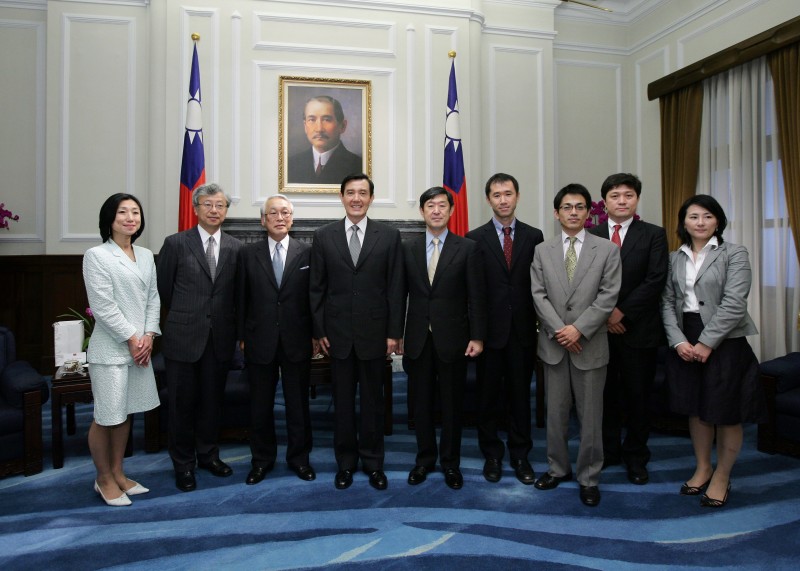News & activities
 News releases
News releases
President Ma Ying-jeou met on the morning of September 21 at the Presidential Office with a delegation of Japanese academics who are visiting Taiwan to attend the Taiwan-Japan dialogue conference. The president extended a cordial welcome to the scholars on behalf of the government of the ROC (Taiwan).
President Ma remarked that Professor Shinichi Kitaoka is a renowned Japanese scholar who once served as deputy chief of Japan's permanent mission to the United Nations. Professor Kitaoka is leading a group of Japanese professors to attend the conference here that seeks to promote strategic cooperation between the two countries. President Ma said the conference is being held at a time when the new government here is striving to improve relations between the two sides of the Taiwan Strait and Japanese Prime Minister Yukio Hatoyama of the Democratic Party of Japan has just taken office, marking a new page in Japanese politics. The president said he is confident that the conference participants will engage in a thorough analysis of Northeast Asian topics as well as discuss future trends. The opinions provided will serve as valuable reference in designing policies, he said. President Ma once again expressed a warm welcome to the visitors on behalf of the government.
President Ma furthermore said that significant changes have taken place in the Northeast Asian economy in recent years. For instance, he said, in 2000 only three nations in Asia had signed free trade agreements. Today, however, this number has risen to 56. Meanwhile, in the 1980s, trade among Asian nations accounted for only 37% of total trade among these countries, but this percentage today has risen to 57%. In the past, nations throughout the region strived to develop markets in Europe and America, and while markets in those two regions continue to be the primary destination for Asian exports, Asia itself is increasingly becoming the destination for exports from Asian countries, he said. Japan will undoubtedly play an important role in this trend, he said, adding that he hopes to see Taiwan and Japan in the future strengthen cooperation in high technology and other fields, thereby providing further depth to the bilateral economic and trade relationship. This will also serve as a foundation to expand into the mainland Chinese market and the global market, he said.
The president commented that Taiwan and Japan have traditionally enjoyed a deep friendship and close economic and trade relations. Therefore, he said that after taking office, he decided to designate the relationship between Taiwan and Japan as a "special partnership," actively promoting and strengthening bilateral cooperation. Over the past year-plus period, these efforts have yielded many results, he said. For instance, President Ma pointed to the completion of fishing negotiations between the two countries earlier this year, Taiwan's plan to set up a new representative office in Sapporo and establish a cultural center in Tokyo, and the implementation of a working holiday visa system that enables youth from each country to spend time in the other. President Ma also mentioned that next year four daily flights will commence between Taipei's Songshan Airport and Tokyo's Haneda Airport, and he also noted that Japan now allows citizens of the ROC (Taiwan) residing in Japan to state "Taiwan" as their nationality on their residence cards. President Ma said that all of these developments were once seem as being too difficult to achieve. Since taking office, the new government has sought to forge each one of these breakthroughs in a systematic manner, and the president added that he is especially pleased to see mutual trust established at the highest levels of government. President Ma expressed his hope that this constructive interaction and goodwill between the two sides will be expanded to other areas in the years to come, and that it will help to continue to add depth to the relationship between Taiwan and Japan.


